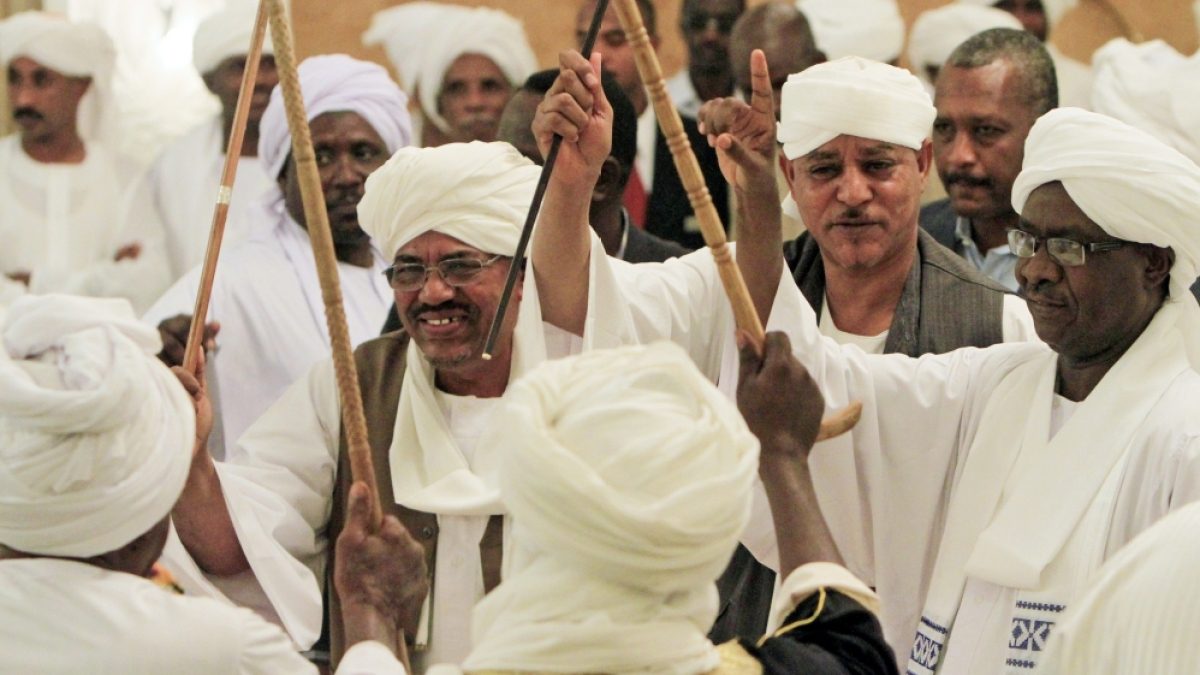Global Courant 2023-05-03 10:54:25
After two weeks of armed conflict, Sudan’s feared paramilitary leader, Mohamed Hamdan ‘Hemedti’ Dagalo, has brought the army to a standoff in the capital, Khartoum.
But his Rapid Support Forces could be more vulnerable in their stronghold in Darfur, where a rival has challenged Hemedti for tribal supremacy, analysts and residents told Al Jazeera.
Enter Musa Hilal, a respected chief of the same Arab Rizeigat tribe that hails Hemedti.
In 2003, Hilal fought on behalf of the government against mainly non-Arab armed groups, who rose up against what they called the state’s neglect and exploitation of Darfur. According to Human Rights Watch, Hilal’s forces — the Popular Defense Forces, dubbed “Janjaweed” by the rebels — were accused of committing summary executions and using rape as a weapon of war.
Between 2003 and 2009, about 300,000 people died in the armed conflict, as well as from disease and famine caused by the war. But while Hilal was scorned worldwide, he was rewarded at home.
In 2005, Sudan’s former leader Omar al-Bashir placed the Hilal fighters under the control of the army and tasked them with protecting Sudan’s borders.
Three years later al-Bashir appointed him as his special adviser and even awarded him a seat in parliament in 2010.
“The problem with these militia leaders is that they start out as proxies (for the central government) and end up having their own political ambitions,” said Hafiz Mohamad, a Sudanese researcher for Justice Africa, who advocates for human rights around the world. continent.
Despite Hilal’s ascension to Khartoum, he eventually returned to Darfur after becoming frustrated with the government’s continued neglect of the region.
The fallout led al-Bashir to turn to Hemedti – then a little-known trader and former combatant – to command a new armed group, the RSF. One of Hemedti’s first tasks was to arrest Hilal for refusing to disarm his troops.
Now Hilal could try to settle the scores by helping the military weaken the RSF.
“When Bashir founded the RSF, he gave Hemedti all sorts of resources. That’s really when this rivalry started. Hilal started an uprising against the government and one of Hemedti’s first tasks was to contain him,’ Mohamad said.
Mobilize forces?
In March 2021, Hilal was pardoned after serving six months in prison, before Hemedti and army commander Abdel Fattah al-Burhan – the two generals now fighting each other – overturned the country’s democratic transition in October 2021 through a coup d’état. to make.
Hilal has kept a low profile since his release, but some analysts believe the military has tried to co-opt him – and fighters from his tribe – to undermine Hemedti.
“Since his return, Hilal has been under the protection of military intelligence,” an expert, who declined to name for fear of losing key resources and access to Sudan, told Al Jazeera.
Signs of a warm relationship between Hilal and the military have been reported. In June 2022, Hilal and his Revolutionary Awakening Council participated in peace talks with a number of other armed groups from Darfur, according to the latest report from the United Nations Panel of Experts on Darfur.
The Sudanese military sent the head of military intelligence, Major General Mohamed Ahmed Sabir, to mediate inter-factional talks under the auspices of Promediation, a French NGO that supports mediation efforts between state and non-state groups.
The discussion focused on the peaceful return of Sudanese mercenaries, many of whom are loyal to Hilal, from Libya.
Months later, in the run-up to the war between the army and the RSF, Arab activists in Darfur reported that the army was recruiting from their clan to form a new frontier force that could undermine Hemedti.
The military doesn’t have that refused that it recruited from Darfur, but it disproved that it coveted fighters from a particular tribe or clan. However, Hilal’s role and whereabouts remain uncertain.
“The leaders of Rizeigat warned of an ongoing campaign to recruit fighters. The mobilization is ongoing, but it is not clear where Hilal fits in,” said Suliman Baldo, the founder of Sudan Transparency and Policy Tracker, a think tank that deals with political affairs in the country.
“The fact that all these (Rizeigat) tribal leaders complained about (recruitment) shows that it was intense activity,” he added.
From strong men to politicians
Although Hilal and Hemedti are both from the Rizeigat, they are from two different clans within the Rizeigat.
The former is from the Mahamid and the latter from the Mahariya.
But, like Hilal, Hemedti evolved from a militia fighter to having his own political ambitions.
The difference is that while Hilal has a loyal following in North Darfur, Hemedti has managed to build relationships with regional backers, such as the United Arab Emirates, Russia and Eritrea.
Those powerful friends give Hemedti and the RSF a huge advantage against any attempt by Hilal to fight him, said Anette Hoffman, an expert on Sudan for the Clingendael Institute, an independent Dutch think tank.
“If there were no foreign players involved, Hilal would be able to mobilize through his tribal ties, including any ties he has in Chad,” she told Al Jazeera. “But with such powerful backers, Hilal simply cannot be compared to Hemedti.”
Despite Hilal’s drawbacks, Hoffman expected he would still try to mobilize fighters, which could make fighting in Darfur considerably more bloody in the coming weeks and months.
“If we see Hemedti killed at some point, then we could see a disintegration of the RSF and also of the Rizeigat as an ethnic group,” she said. “Hilal would then play a role that leads to more suffering and more fighting and access to weapons. He would help make things uglier than they already are.”
For non-Arab communities in West Darfur, the scarier scenario is if Hilal and Hemedti put aside their differences to fight the army, said Zakaria Bedour, a local human rights monitor in the province.
She stressed that Mahamid militias and communities are already receiving support from the RSF to target non-Arabs in el-Geneina, the capital of West Darfur. The latest violence is partly due to a power vacuum in the region, as Arab militias try to seize control of land and water resources.
Nearly 200 people were killed in the attacks, according to local doctors. Internally displaced camps sheltering non-Arab communities were also burned down, while markets, hospitals and warehouses belonging to international aid organizations were looted.
“If (Hemedti and Hilal) get along, it will affect the African tribes and the internally displaced. (Hilal and Hemedti) remember the displaced as opponents of them (in previous wars),’ Zakaria warned.
“The consequence would make the (Arab) forces much larger than the (armed non-Arab groups) in (Western Darfur).”







